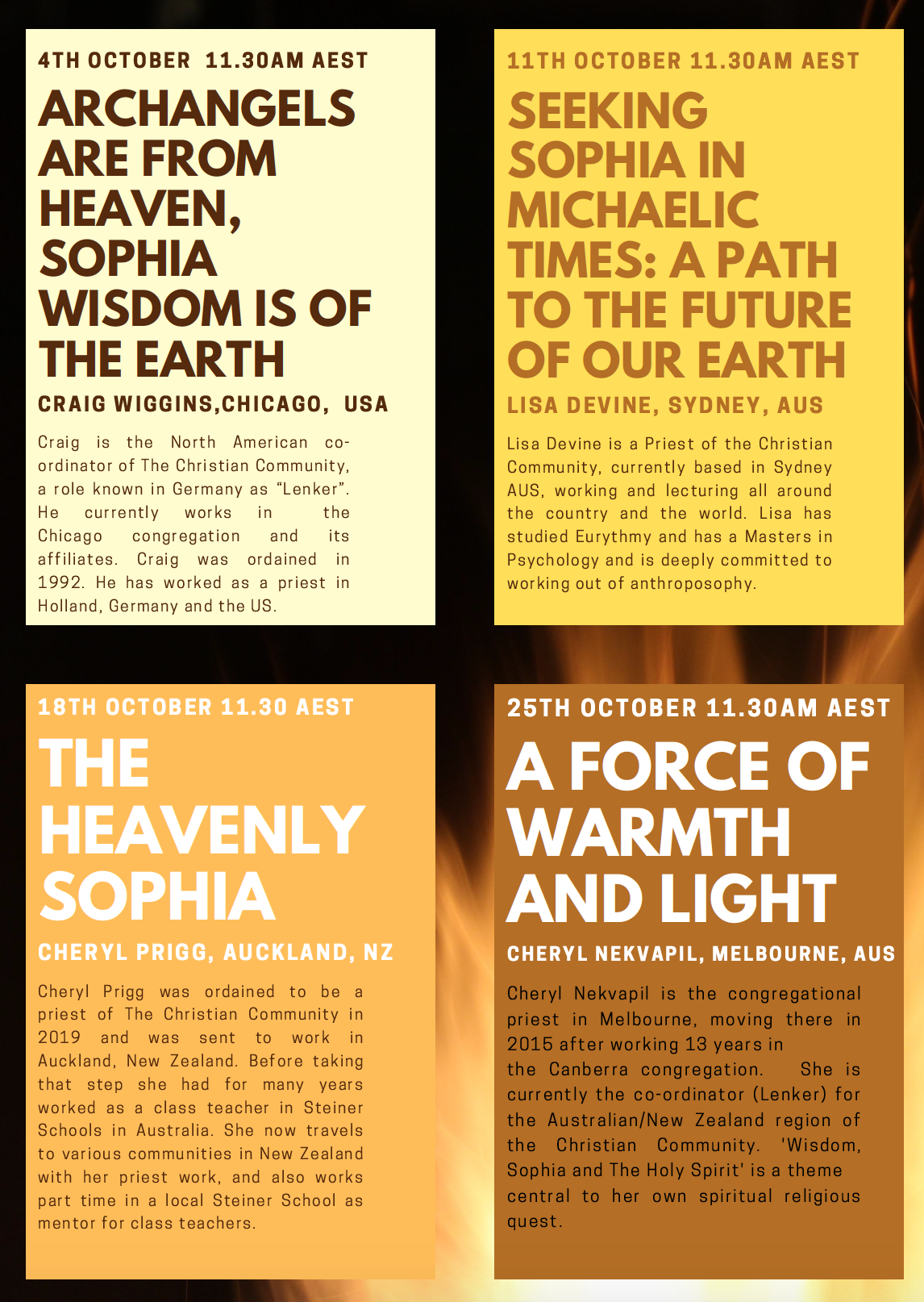Latest News
Kitchen Chat and more…
Kitchen Chat and more…
 The Christian Community in Melbourne Australia is hosting a Michaelmas festival of 4 presentations in October.
The Christian Community in Melbourne Australia is hosting a Michaelmas festival of 4 presentations in October.To register:
thechristiancommunitymelbourne@gmail.com
Our eyes have the capacity of adjusting themselves to darkness. When we come out of sunlight into a dark tunnel or cave, we are at first disoriented. Or when we walk at night from a lighted street into a dark wood, we may perhaps be frightened by the darkness. But if we do not lose patience we notice that our eyes gradually become used to the darkness, and that we begin to recognize the world around us. This is actually the best way to overcome fear of darkness—walk step by step into a dark space; wait until you become familiar with the darkness, and you begin to see.
This is not only true in the physical world, but also a spiritual reality. Every day we are confronted with a world of dark, horrific events. As a rule, we don’t want to see them at all. We turn away and try to force ourselves to look at the light side of life. In our current western world there is even an aversion to every sort of darkness. We turn away from the sick, the dying, the hungry, the refugees, the criminals. We don’t want to see the dark side of life. Or are we perhaps afraid of it?
When Christ spoke of the eye as the light source of the body, He was not telling a parable, but a daily truth. It is not the bad world that makes us bad. It is not the darkness outside us that darkens us inwardly. But it is the way we look into the world that brings us darkness or light.
The question is not: What do I see?
But: How do I see?
Am I looking into the world with fear, with abhorrence, or even with hatred?
Or can I look into that same world with compassion and love, in spite of all the darkness?
This subtle way of looking not only illumines and relieves ourselves, but will eventually also illumine and relieve the darkness of the world around us.
A mother who had lost her two children wrote after a long period of rebelliousness, mourning and depression:
When I
concentrated
and full of love
look at the darkness
then I see
light.
–Rev. Bastiaan Baan, September 20, 2020
The Ten Lepers Cleansed (Lk.17:11-19)
The better part of our lives as adults consists of duties. We have little choice: we have hardly finished our work, or when the next duty is already awaiting us. Many people do little more than move from one duty to another all their lives. And when a person scrupulously fulfills all those duties and tasks he is praised for his diligence.
No matter how diligent such a person is, he misses something that is indispensable. We only become truly human when we add to all we MUST do something we WANT to do, without anyone telling us to do it.
When the ten leprous men had been cleansed of their illness by Jesus, they were told to go and show themselves to the priests. That was the commandment in the law.
But one of them goes beyond the duty and does something of his own accord: he comes back to give thanks. No one has told him to do so. And it is certainly not just a formality he observes, for he falls prostrate at the feet of Jesus and thanks Him from the bottom of his heart. You can’t bow down deeper than that. You can’t be more convincing in your thankfulness.
All who fulfill their duty are cleansed. But are they also healed? Only this one human being, who gives thanks with heart and soul, hears the redeeming words from Jesus: “Your faith has made you well.” (RSV—Greek sesōken, saved)
And we, when we receive His medicine that makes whole, the Sacrament, are we then able to give thanks to Him with heart and soul?
-Rev. Bastiaan Baan, September 13, 2020

